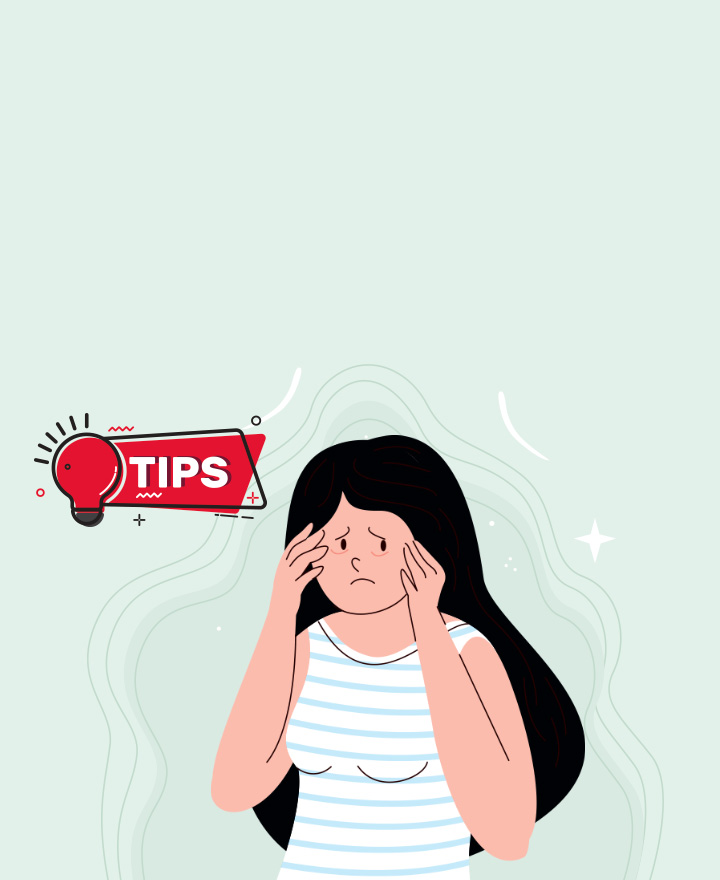

Why Do I Have an Oily Scalp?
Is your hair always greasy and shiny? Does your hair begin to clump together due to grease even if you have just washed it? You may have an oily scalp. This means the sebaceous glands of your scalp may be producing excess sebum, leading to an oily exterior that dampens your shine. An oily scalp can be caused due to various biological and environmental reasons. Read on to know more.
Causes
Genetics, hormone fluctuations, and lifestyle factors all play a role in causing oily scalps. Some of the common medically recognized reasons include:
1. Skin problems:
Some skin diseases that affect the scalp might cause oily hair. Seborrheic dermatitis, a scaly scalp and face disorder affects the oil-producing glands. In addition to redness, flaking, and crusting, you may experience greasy hair.
2. Hormonal imbalances:
Oily scalp causes hormonal acne, experienced by women during their period because of the increase in oil production.
Treatment
There are multiple shampoo options including clarifying and tea tree oil-infused version that are effective at managing oil. Additionally, certain home remedies can also help you adjust the pH.
A) Shampoos for oily hair
Clarifying shampoos eliminate residue, whereas volumising shampoos create volume without over-drying. Shampoos infused with tea tree oil, citrus, or mint include natural antibacterial and astringent characteristics that help balance excess oil.
It is recommended to choose salicylic acid shampoos for exfoliating and oil control. Look for oil-free or clear formulations with non-comedogenic components. To avoid promoting oil production, use lukewarm water instead of heavy conditioners.
B) Home remedies
An oily scalp causes an imbalance of pH and to manage that use home remedies such as an apple cider vinegar rinse or a lemon juice application. Masks made with aloe vera, egg whites, and honey reduces oil and nourishes the hair.
Green tea rinse has antioxidants that help manage oil. Brew 1-2 green tea bags, apply to hair for 10-15 minutes and then wash off. Drinking tea increases hair development and alleviates scalp inflammation.
For a quick fix, you can also use Fuller's earth, a clay-like material that absorbs oils and soothes glands. Mix it with water to create a mask, apply for 15-20 minutes, and then wash off.
Lifestyle Modification Tips
Avoid touching your hair excessively, as it transfers oils. Choose a good shampoo and wash frequently but not excessively. Wash your hair with lukewarm water and rinse it. Maintain a balanced diet and remain hydrated. Regular exercise boosts overall health and may regulate oil production.
Conclusion
Genetics, hormonal imbalances, and skin conditions can contribute to oily scalps. Effective shampoos such as clarifying tea tree oil-infused options can control oil production.
One of the important components of our overall wellness is also being financially secured. Healthcare emergencies can happen any time, but a good health insurance policy can protect you from such uncertain situations. To know more about Wellness and other health related tips, visit the wellness corner.
Source: headandshoulders.co.in, healthline.com
Disclaimer: This blog provides general information and discussions about health and related subjects. The information and other content provided in this blog, website or in any linked materials are not intended and should not be considered, or used as a substitute for, medical advice, diagnosis or treatment. Kindly contact your Doctor before starting a new medicine or health regime.
Related Articles
Polycystic Ovary Syndrome: Foods to Eat & Avoid
Include More Calcium- Rich Foods in Your Diet – Here Is Why
Things to know about Keto Diet
Food to Eat & Avoid To Overcome Vitamin B12 Deficiency
Published on May 10, 2024














 Health Insurance
Health Insurance  Travel Insurance
Travel Insurance  Car Insurance
Car Insurance  Cyber Insurance
Cyber Insurance  Critical Illness Insurance
Critical Illness Insurance
 Pet Insurance
Pet Insurance
 Bike/Two Wheeler Insurance
Bike/Two Wheeler Insurance  Home Insurance
Home Insurance  Third Party Vehicle Ins.
Third Party Vehicle Ins.  Tractor Insurance
Tractor Insurance  Goods Carrying Vehicle Ins.
Goods Carrying Vehicle Ins.  Passenger Carrying Vehicle Ins.
Passenger Carrying Vehicle Ins.  Compulsory Personal Accident Insurance
Compulsory Personal Accident Insurance  Travel Insurance
Travel Insurance  Rural
Rural